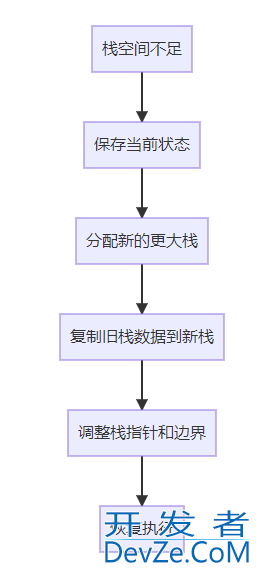Py之pycocotools库的简介、安装、使用方法及说明
目录
- pycocotools库的简介
- pycocotools库的安装
- pycocotools库的使用方法
- 1、from pycocotools.coco import COCO
- 2、输出COCO数据集信息并进行图片可视化
- 总结
pycocotools库的简介
pycocotools是什么?即python api tools of COCO。
COCO是一个大型的图像数据集,用于目标检测、分割、人的关键点检测、素材分割和标题生成。
这个包提供了Matlab、Python和Luaapi,这些api有助于在COCO中加载、解析和可视化注释。
请访问COCO - Common Objects in Context,可以了解关于COCO的更多信息,包括数据、论文和教程。
COCO网站上也描述了注释的确切格式。
Matlab和PythonAPI是完整的,LuaAPI只提供基本功能。
除了这个API,请下载COCO图片和注释,以便运行演示和使用API。
两者都可以在项目网站上找到。
- -请下载、解压缩并将图像放入:coco/images/
- -请下载并将注释放在:coco/annotations中/
COCO API: http://cocodataset.org/
pycocotools库的安装
pip install pycocotools==2.0.0 or pip install pycocotools-Windows
pycocotools库的使用方法
1、from pycocotools.coco import COCO
__author__ = 'tylin' __version__ = '2.0' # Interface for Accessing the Microsoft COCO dataset. # Microsoft COCO is a large image dataset designed for object detection, # segmentation, and caption generation. pycocotools is a Python API that # assists in loading, parsing and visualizing the annotations in COCO. # Please visit http://mscoco.org/ for more information on COCO, including # for the data, paper, and tutorials. The exact format of the annotations # is also described on the COCO website. For example usage of the pycocotools # please see pycocotools_demo.ipynb. In addition toTZUxQOgd this API, please download both # the COCO images and annotations in order to run the demo. # An alternative to using the API is to load the annotations directly # into Python dictionary # Using the API provides additional utility functions. Note that this API # supports both *instance* and *caption* annotations. In the case of # captions not all functions are defined (e.g. categories are undefined). # The following API functions are defined: # COCO - COCO api class that loads COCO annotation file and prepare data structures. # decodeMask - Decode binary mask M encoded via run-length encoding. # encodeMask - Encode binary mask M phpusing run-length encoding. # getAnnIds - Get ann ids that satisfy given filter conditions. # getCatIds - Get cat ids that satisfy given filter conditions. # getImgIds - Get img ids that satisfy given filter conditions. # loadAnns - Load anns with the specified ids. # loadCats -编程客栈 Load cats with the specified ids. # loadImgs - Load imgs with the specified ids. # annToMask - Convert segmentation in an annotation to binary mask. # showAnns - Display the specified annotations. # loadRes - Load algorithm results and create API for accessing them. # download - Download COCO images from mscoco.org server. # Throughout the API "ann"=annotation, "cat"=category, and "img"=image. # Help on each functions can be accessed bjavascripty: "help COCO>function". # See also COCO>decodeMask, # COCO>encodeMask, COCO>getAnnIds, COCO>getCatIds, # COCO>getImgIds, COCO>loadAnns, COCO>loadCats, # COCO>loadImgs, COCO>annToMask, COCO>showAnns # Microsoft COCO Toolbox. version 2.0 # Data, paper, and tutorials available at: http://mscoco.org/ # Code written by Piotr Dollar and Tsung-Yi Lin, 2014. # Licensed under the Simplified BSD License [see bsd.txt]
2、输出COCO数据集信息并进行图片可视化
from pycocotools.coco import COCO
import matplotlib.pyplot as plt
import cv2
import os
import numpy as np
import random
#1、定义数据集路径
cocoRoot = "F:/File_Python/Resources/image/COCO"
dataType = "val2017"
annFile = os.path.join(cocoRoot, f'annotations/instances_{dataType}.json')
print(f'Annotation file: {annFile}')
#2、为实例注释初始化COCO的API
coco=COCO(annFile)
#3、采用不同函数获取对应数据或类别
ids = coco.getCatIds('person')[0] #采用getCatIds函数获取"person"类别对应的ID
print(f'"person" 对应的序号: {ids}')
id = coco.getCatIds(['dog'])[0] #获取某一类的所有图片,比如获取包含dog的所有图片
imgIds = coco.catToImgs[id]
print(f'包含dog的图片共有:{len(imgIds)}张, 分别是:',imgIds)
cats = coco.loadCats(1) #采用loadCats函数获取序号对应的类别名称
print(f'"1" 对应的类别名称: {cats}')
imgIds = coco.getImgIds(catIds=[1]) #采用getImgIds函数获取满足特定条件的图片(交集),获取包含person的所有图片
print(f'包含person的图片共有:{len(imgIds)}张')
#4、将图片进行可视化
imgId = imgIds[10]
imgInfo = coco.loadImgs(imgId)[0]
print(f'图像{imgId}的信息编程客栈如下:\n{imgInfo}')
imPath = os.path.join(cocoRoot, 'images', dataType, imgInfo['file_name'])
im = cv2.imread(imPath)
plt.axis('off')
plt.imshow(im)
plt.show()
plt.imshow(im); plt.axis('off')
annIds = coco.getAnnIds(imgIds=imgInfo['id']) # 获取该图像对应的anns的Id
print(f'图像{imgInfo["id"]}包含{len(anns)}个ann对象,分别是:\n{annIds}')
anns = coco.loadAnns(annIds)
coco.showAnns(anns)
print(f'ann{annIds[3]}对应的mask如下:')
mask = coco.annToMask(anns[3])
plt.imshow(mask); plt.axis('off')
总结
以上为个人经验,希望能给大家一个开发者_JS学习参考,也希望大家多多支持我们。






 加载中,请稍侯......
加载中,请稍侯......
精彩评论